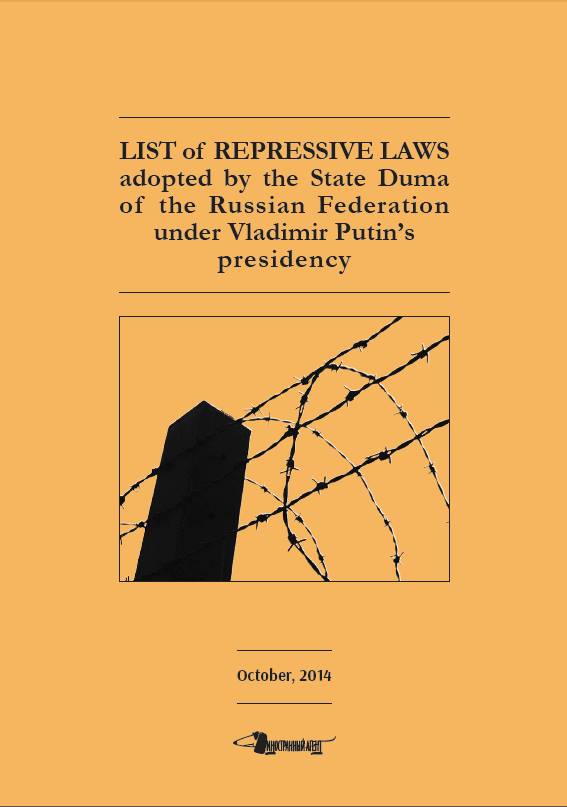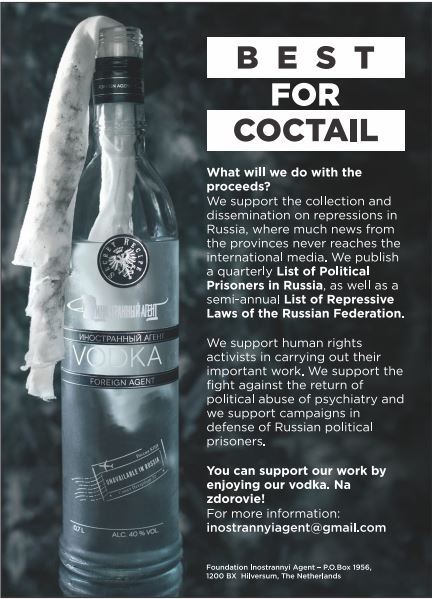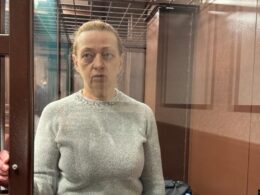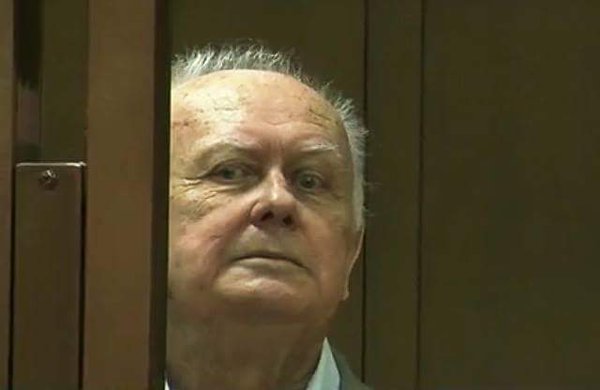The human rights situation in Russia has plummeted back into Soviet times. Over the past four months, the number of political prisoners in Russia has passed the 100 person mark and reached the number of 114, according to the Netherlands-based Foundation “Inostrannyi Agent” - Human Rights Initiative for the former USSR. This number is quite similar to the number during the last years of the Soviet Union.
"If the growth continues at this pace – and we have every reason to believe it will – we will soon see lists that are no smaller than those of the worst years of Soviet repression," remarked Robert van Voren, chairman of "Inostrannyi Agent" at the presentation of a new List of Political Prisoners in Russia published by The Human Rights Initiative on October 30, the Day of the Political Prisoner. It contains the names of persons who have either been sentenced for political or religious reasons or are currently under criminal investigation for these reasons.
Portraits of some of the political prisoners in Russia. The full album is available on Robert van Voren's FB page.
A previous list, published four months ago, consisted of 92 names of such prisoners, while in December 2013 the number was only 52. The List has been printed in a similar format as the List of Political Prisoners of the USSR that was published in the 1980s, symbolizing the return of Soviet-style repression in Russia. The main part of the current group of political prisoners consists of persons who were arrested for voicing their oppositional views. Among the current political prisoners are several foreigners, e.g. four Ukrainian activists from the annexed Crimea who were arrested on suspicion of “terrorism,” the Estonian counter-intelligence officer Eston Kohver
who was kidnapped from Estonian territory, and the Ukrainian pilot Nadiya Savchenko, who was kidnapped in Eastern Ukraine and is currently held in the Serbski Institute in Moscow for compulsory psychiatric examination.
Download List of political prisoners in the Russian Federation - PDF
"On the whole, it is our belief that the situation is actually worse than during the years of Brezhnev, Andropov and Chernenko. The fundamental difference is that in those years hardly any Soviet citizen believed in the omnipresent Communist ideology, yet now large numbers of Russian citizens believe in Putin’s neo-fascist rhetoric. Those who disagree with the Kremlin policy are branded not only as “foreign agent”, but also as “people’s traitors” and “fifth column”. It is a language that we last saw during the 1930s and 1940s, the worst years of Stalin’s repression," noted Mr.van Voren.
 Also published today is the List of Repressive Legislation of the Russian Federation. The collection contains information on almost two-dozen laws that have been adopted to curb civil liberties in Russia and to provide the State with a wide range of possibilities to imprison people for their political or religious convictions or their civil activity. Together, these laws create a very disturbing picture, as the set of laws offer more possibilities than those in Brezhnev times and are much more similar to the Article 58 that was used during the time of Stalin and on basis of which virtually every citizen in the country was guilty by definition. "With the recent remarks of the Chief Investigator of Russia, General Bastrykin, that the presumption of innocence should be abandoned, we see a picture emerging of a full-scale return of Soviet justice," stated Robert van Voren.
Also published today is the List of Repressive Legislation of the Russian Federation. The collection contains information on almost two-dozen laws that have been adopted to curb civil liberties in Russia and to provide the State with a wide range of possibilities to imprison people for their political or religious convictions or their civil activity. Together, these laws create a very disturbing picture, as the set of laws offer more possibilities than those in Brezhnev times and are much more similar to the Article 58 that was used during the time of Stalin and on basis of which virtually every citizen in the country was guilty by definition. "With the recent remarks of the Chief Investigator of Russia, General Bastrykin, that the presumption of innocence should be abandoned, we see a picture emerging of a full-scale return of Soviet justice," stated Robert van Voren.
 Creative fundraising for human rights initiatives: vodka for freedom
Creative fundraising for human rights initiatives: vodka for freedom
Though the situation is grim, the good news is that you can make it better. The publication of these lists has been made possible through the sale of “foreign agent vodka,” which was marketed this year and of which the profit goes to the Human Rights Initiative to finance its activities. What started as a joke has become a real means of financing human rights activity. Since the summer of this year, a premium vodka is on sale that is named after the notion of “inostrannyj agent”, foreign agent, a notion that is given to any non-governmental organization that is politically active and receives funding from abroad. It is clear, both from the text of the law and its implementation, that the main goal of the law is to kill civil society in Russia and make oppositional activity virtually impossible. A large portion of the sale of the vodka goes to the Human Rights Initiative for the former USSR, which actively fights the deteriorating human rights situation in Russia. The vodka is being sold in Lithuania only, but will be marketed to other countries in the nearest time. Check the Vodka for Freedom facebook page to keep track of the latest news.












